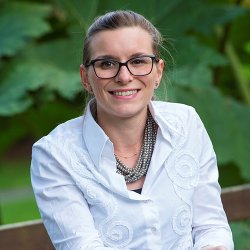Development and use of advanced optical microscopy to facilitate gene delivery and gene therapy in 3D cardiac disease models
This PhD studentship aims to develop and use a novel optical technique for microscopic imaging and single-cell transfection for cells in 3D cardiovascular models.
Start date
1 October 2022Duration
3.5 yearsApplication deadline
Funding source
EPSRC Doctoral Training PartnershipFunding information
Enhanced EPSRC stipend (£19,062 per annum for 2022-23, with annual increments based on inflation) and fees covered. Funding also includes a research training and support grant of £3,000 for the duration of the studentship.
About
This is an exciting fully funded PhD studentship opportunity exploring the pathogenesis and treatment of human cardiac diseases with a potential for a vast array of 3D tissue engineering applications using advanced optical microscopy techniques. Recent advance in 3D organotypic models of the vertebrate heart has enabled to study the reparative potential of the epicardium for cardiac tissue engineering and therapeutic applications within the native heart environment. (npj Regenerative Medicine 7(1), 1-16, 2022). However, in both these specific applications and more broadly in tissue engineering approaches, a new technology that is capable of correcting for sample-induced blur in sensing and imaging is urgently needed to enable effective localised gene delivery for gene therapy and cell tracking and label- free longitudinal cell imaging within 3D systems. These features are available separately in other optical platforms but have never been hitherto combined all together and optimised for tissue engineering applications.
This PhD project will develop and use advanced optical microscopy techniques, which enable to perform not only reporter genes and/or reparative genes delivery to targeted cells in 3D cardiac disease models but also two-photon autofluorescence, second harmonic generation and third harmonic generation microscopy imaging to evaluate spatial distribution and temporal dynamics of transfected cells over time and dynamic changes within the tissue structure in response to therapeutic interventions. In addition, the application of adaptive optics that is capable of correcting for sample-induced blur (i.e., aberration and scattering) in microscopy will push the boundary of photoporation applications from 2D cellular environments to 3D tissue models.
The successful candidate will be involved in an interdisciplinary research project with investigators from a broad range of expertise. The student will be taught advanced optical imaging and tissue engineering techniques as well as cardiovascular biology in order to undertake the work described above.
Related links
Dr Youngchan Kim’s group webpageAdditional notes
Training and development opportunity: Through this exciting multidisciplinary project, you will be given an opportunity to build your skills and knowledge on cutting-edge topics in advanced optical imaging, single cell optical transfection, 3D tissue engineering and 3D cardiovascular models. In addition, there will be an opportunity to present your result at national/international conferences during the PhD. Finally, you will be supported by the supervision team on building your skills as an independent researcher.
The environment: The University of Surrey is at the heart of the town of Guildford. We have a highly diverse research environment with a good gender and ethical balance. The student will have access to the state-of-art optical systems at the Advanced Technology Institute with ample support from professional staff.
The candidate: We are looking for an enthusiastic, self-motivated student to work on this exciting project. The ideal candidate will have experience in wet-lab and/or optics experiments, good communication skills in English, and most importantly, a determined mindset to pursue the research project. We are particularly interested in candidates with previous experience in cardiovascular biology or optical bioimaging.
Contact: Interested candidates are encouraged to make an informal inquiry to Dr Youngchan Kim (youngchan.kim@surrey.ac.uk) as soon as possible as the funding is competitive.
Eligibility criteria
Applicants are expected to hold a good honours degree (upper second) in an appropriate discipline, but prior experience in research or industry may be acceptable. Enthusiasm for, and commitment to, independent study is essential.
English Language requirements
IELTS Academic: 6.5 or above (or equivalent) with 6 in each individual category.
How to apply
Applications should be submitted via the Biosciences and Medicine PhD programme page on the "Apply" tab (select October 2022 start date). Please clearly state the studentship title and supervisor on your application. Once you have completed and submitted your application, please send an email to the primary supervisors confirming you have applied.
Studentship FAQs
Read our studentship FAQs to find out more about applying and funding.
Application deadline
Contact details
Research
Main Supervision Team
- Dr Paola Campagnolo (Senior Lecturer in Molecular Cardiovascular Biology, School of Biosciences and Medicine, FHMS)
- Dr Youngchan Kim (Lecturer in Quantum Biology, Advanced Technology Institute, School of Biosciences and Medicine, FHMS)

Studentships at Surrey
We have a wide range of studentship opportunities available.

